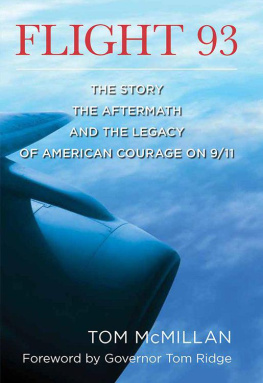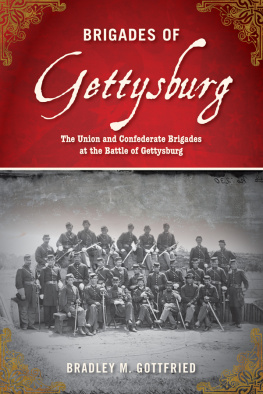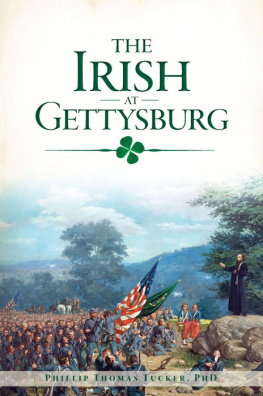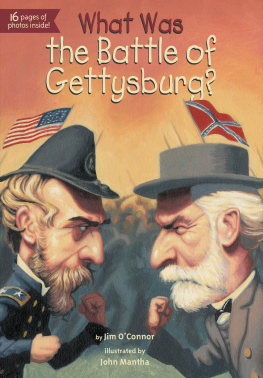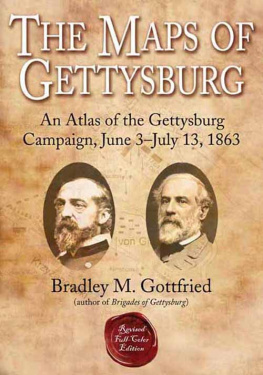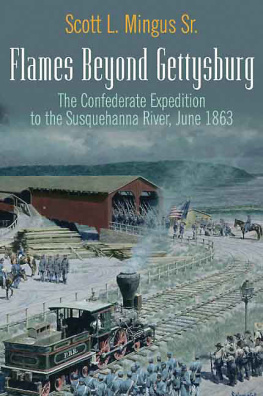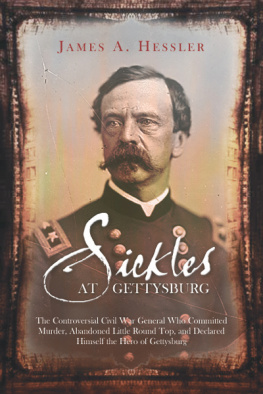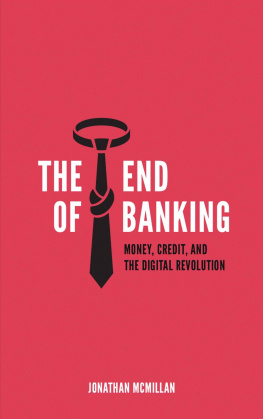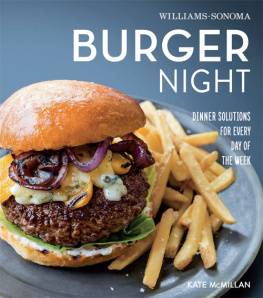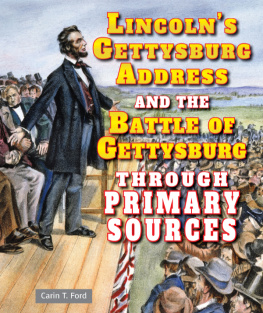Tom Mcmillan - Gettysburg Rebels
Here you can read online Tom Mcmillan - Gettysburg Rebels full text of the book (entire story) in english for free. Download pdf and epub, get meaning, cover and reviews about this ebook. year: 2017, publisher: Regnery Publishing, genre: Non-fiction. Description of the work, (preface) as well as reviews are available. Best literature library LitArk.com created for fans of good reading and offers a wide selection of genres:
Romance novel
Science fiction
Adventure
Detective
Science
History
Home and family
Prose
Art
Politics
Computer
Non-fiction
Religion
Business
Children
Humor
Choose a favorite category and find really read worthwhile books. Enjoy immersion in the world of imagination, feel the emotions of the characters or learn something new for yourself, make an fascinating discovery.

- Book:Gettysburg Rebels
- Author:
- Publisher:Regnery Publishing
- Genre:
- Year:2017
- Rating:5 / 5
- Favourites:Add to favourites
- Your mark:
- 100
- 1
- 2
- 3
- 4
- 5
Gettysburg Rebels: summary, description and annotation
We offer to read an annotation, description, summary or preface (depends on what the author of the book "Gettysburg Rebels" wrote himself). If you haven't found the necessary information about the book — write in the comments, we will try to find it.
Gettysburg Rebels — read online for free the complete book (whole text) full work
Below is the text of the book, divided by pages. System saving the place of the last page read, allows you to conveniently read the book "Gettysburg Rebels" online for free, without having to search again every time where you left off. Put a bookmark, and you can go to the page where you finished reading at any time.
Font size:
Interval:
Bookmark:
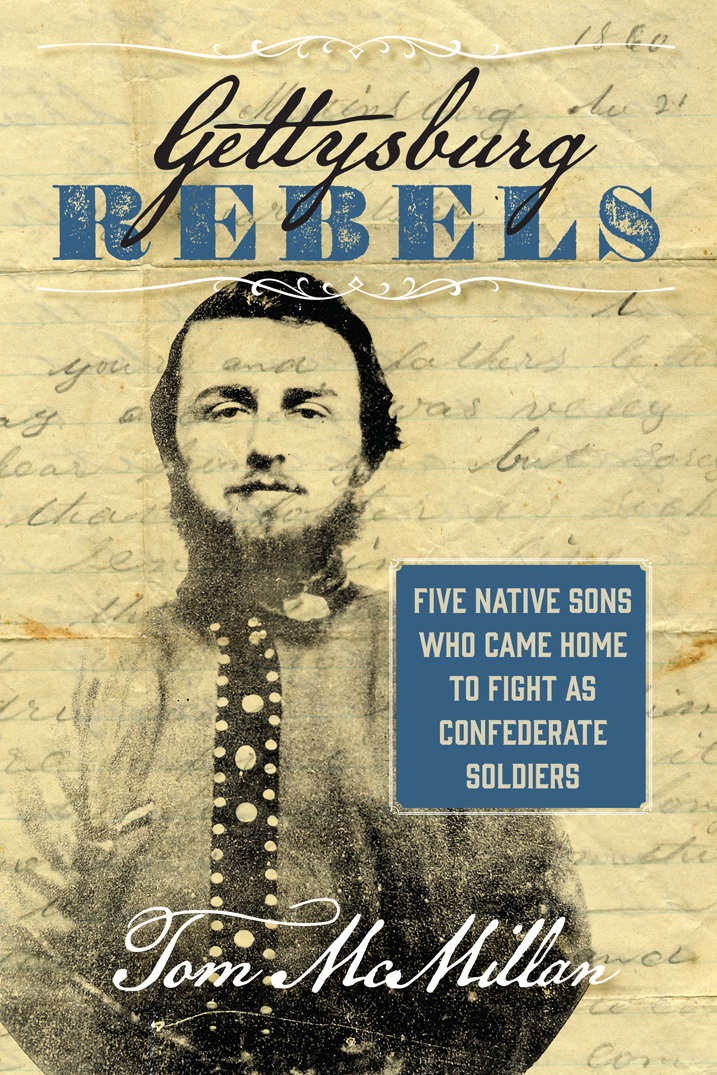


Copyright 2017 by Tom McMillan
All rights reserved. No part of this publication may be reproduced or transmitted in any form or by any means electronic or mechanical, including photocopy, recording, or any information storage and retrieval system now known or to be invented, without permission in writing from the publisher, except by a reviewer who wishes to quote brief passages in connection with a review written for inclusion in a magazine, newspaper, website, or broadcast.
Regnery History is a trademark of Salem Communications Holding Corporation; Regnery is a registered trademark of Salem Communications Holding Corporation
Cataloging-in-Publication data on file with the Library of Congress
First e-book edition, 2017: ISBN 978-1-62157-618-1
Published in the United States by
Regnery History, an imprint of
Regnery Publishing
A Division of Salem Media Group
300 New Jersey Ave NW
Washington, DC 20001
www.RegneryHistory.com
Manufactured in the United States of America
10 9 8 7 6 5 4 3 2 1
Books are available in quantity for promotional or premium use. For information on discounts and terms, please visit our website: www.Regnery.com.
Distributed to the trade by
Perseus Distribution
www.perseusdistribution.com
Table of Contents
Contents
To At,
who encouraged me to dream
And to Colleen,
who made sure that I did
I was different from other Gettysburg battlefield trampers. I was often drawn to obscurity.
I would whisk past Devils Den and Little Round Top and the field of Picketts Charge to find myself at an often-ignored corner of the Emmitsburg and Wheatfield Roads, where a plain iron tablet next to an old stone foundation reads simply, Wentz House. How poetic.
It was here that an elderly Adams County resident, John Wentz, crouched in his cellar during the battle of Gettysburg on July 2, 1863, unaware, at least at first, that his son, Henry, who had grown up in that house, was posted six hundred yards away as an artillery sergeant in the Confederate army.
Henry Wentzs homecoming as an enemy soldier has intrigued me since the day I first read about it in Harry Pfanzs Gettysburg: The Second Day. I wanted to learn more about himto read and study more, to advance the story in my own mindbut, alas, very little was available in books. Like many other soldiers in the Civil War, Henry did not write about his experiences, or if he did, nothing has survived. No one has seen his photo or any of his possessions. He was, and is, a mysteryand perhaps he preferred it that way.
But I decided to explore. I came up with an idea to write a book about two young men from Gettysburg who had fought as Confederates in the battle of GettysburgHenry Wentz and Wesley Culp, whose name is better known because of his familys hometown roots. In the process, however, I learned that three brothers named Hoffman had also grown up in Gettysburg and become Rebel soldiers, and that all three had direct connections to Culp.
Thus, Gettysburg Rebels was born.
The research was a challenge because Culp was killed in the battle, and none of the others wrote about his actions during this cataclysmic period in the nations history. Aside from Culps, no portraits of the men exist (though perhaps an unknowing descendant will dig into a box and come forward with one after this is published). But I decided that a lack of such traditional evidence should not deter me. These mens stories still deserved to be told.
Uncovering those stories took me on an amazing journey to places Id never been (Shepherdstown and Martinsburg) and some Id never heard of (Linden and Warrenton), in addition to Harpers Ferry and Gettysburg. I scanned countless pages of oversized county deed books that probably had not been opened for a hundred years and sifted through wills, tax records, church records, newspaper advertisements, family files, obituariesand, of course, military service records and pension applications at the National Archives. I met and was helped by many wonderful people along the way.
The story in these pages is certainly not the complete account of Henry Wentz, Wesley Culp, and the three Hoffman brothers, but Im convinced it is the closest anyone has come. Perhaps it will spark more dogged research and the uncovering of more clues (maybe even a photo).
In the meantime, I hope that you enjoy the narrative presented herethe story of five young men who grew up in the North, fought for the South, and marched on their old hometown with an invading army in July 1863.
However you judge them, they will no longer be obscure.
Tom McMillan
Pittsburgh, Pennsylvania
December 2016
F ifty miles from the Gettysburg battlefield, on a gently sloping hill behind the Green Hill Cemetery mausoleum in Martinsburg, West Virginia, a weather-beaten and barely legible tombstone marks the final resting place of one of the fascinating figures of the American Civil War.
Henry Wentz
Died December 10, 1875
Aged 48 Years
The stark memorial offers no tribute to his four years of artillery service for the Confederate States of America, makes no mention of his deeds on fields of honor at Manassas, Sharpsburg, Mechanicsvilleor, hauntingly, Gettysburg. It is as though the friends and family of Henry Wentz did not comprehend the extraordinary role in Americas great cataclysm of a man who invaded his old hometown with a foreign army and fired on the house where he grew up.
Born in nearby York County, Pennsylvania, in 1827, Wentz was just turning nine years old when his family moved to the Gettysburg area.
If Orderly Sergeant Wentz felt a strange queasiness two years later as the Army of Northern Virginia thundered into south-central Pennsylvania, he would not have been alone. Four other men in Robert E. Lees invading force had grown up in Gettysburg. John Wesley Culp, from one of the boroughs most prominent families and a private in Company B of the Second Virginia Infantry, was immortalized when he fell in battle near his cousins farm. The three remaining Gettysburg Rebels, however, were unknown even to Civil War historians for well over 130 years.
These were the Hoffman brothersRobert, Frank, and Wesley. Their father, C. W. Hoffman, had been one of Gettysburgs leading citizens, but in 1856 he suddenly, and somewhat mysteriously, pulled up stakes and moved to northwestern Virginia, with profound consequences for the lives of four future Civil War soldiers. Wesley Culp, a sixteen-year-old apprentice in Hoffmans Gettysburg carriage-making business, went with his boss, helping him open a new shop in Shepherdstown, in what became West Virginia. Culp joined the local militia known as the Hamtramck Guards and eventually entered the Confederate service when the unit became Company B of the Second Virginia Infantry in 1861. And yet most historians have overlooked the story of Hoffmans own sons, who also moved south with their father.
Robert Newton Hoffman, the eldest of C. W. Hoffmans surviving sons, worked alongside Wes Culp at his fathers carriage shop in Gettysburg. Like Culp, Robert joined the Hamtramck Guards after arriving in Shepherdstown and enlisted in Company B of the Second Virginia when their adopted state seceded in April 1861. He was with Culp at the battle of First Manassas and other major engagements with the famous Stonewall Brigade. Though no longer in a combat role by the time of the Gettysburg campaign, Robert came north with Lees army and served throughout the campaign.
Font size:
Interval:
Bookmark:
Similar books «Gettysburg Rebels»
Look at similar books to Gettysburg Rebels. We have selected literature similar in name and meaning in the hope of providing readers with more options to find new, interesting, not yet read works.
Discussion, reviews of the book Gettysburg Rebels and just readers' own opinions. Leave your comments, write what you think about the work, its meaning or the main characters. Specify what exactly you liked and what you didn't like, and why you think so.

